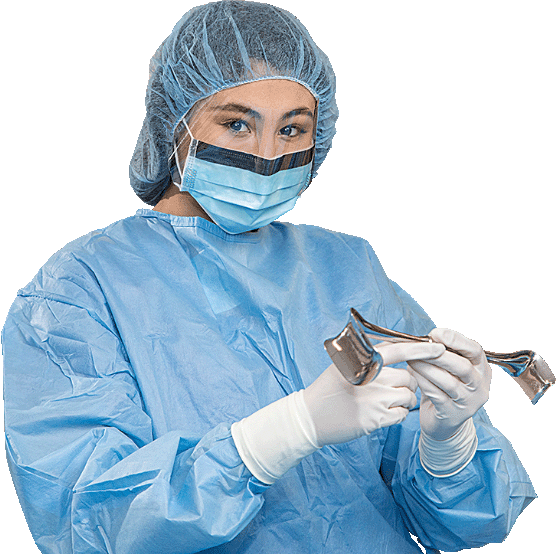Central Service Instrument Technician (CSIT)
Every day, more people are in need of health care services—which means there are more career opportunities in the health care industry than ever before, too.
Central Service Instrument Technicians (also known as central service technicians, sterile processing technicians, sterile preparation technicians or surgical equipment technicians) offer crucial support in patient care services and in processing, cleaning, and dispensing medical equipment and instruments in hospitals and other medical centers. Not only are they tasked with being familiar with all of the tools used in an operating room, but they must also sterilize and package instruments used during surgery.
As the number of surgical procedures performed on our growing and aging population continues to increase, so, too, will the need for Central Service Instrument Technicians. Health care technology is also evolving, with increased use of fiber optics, laser technology, robotics, and interventional radiology—all of which will mean new surgical procedures and equipment.
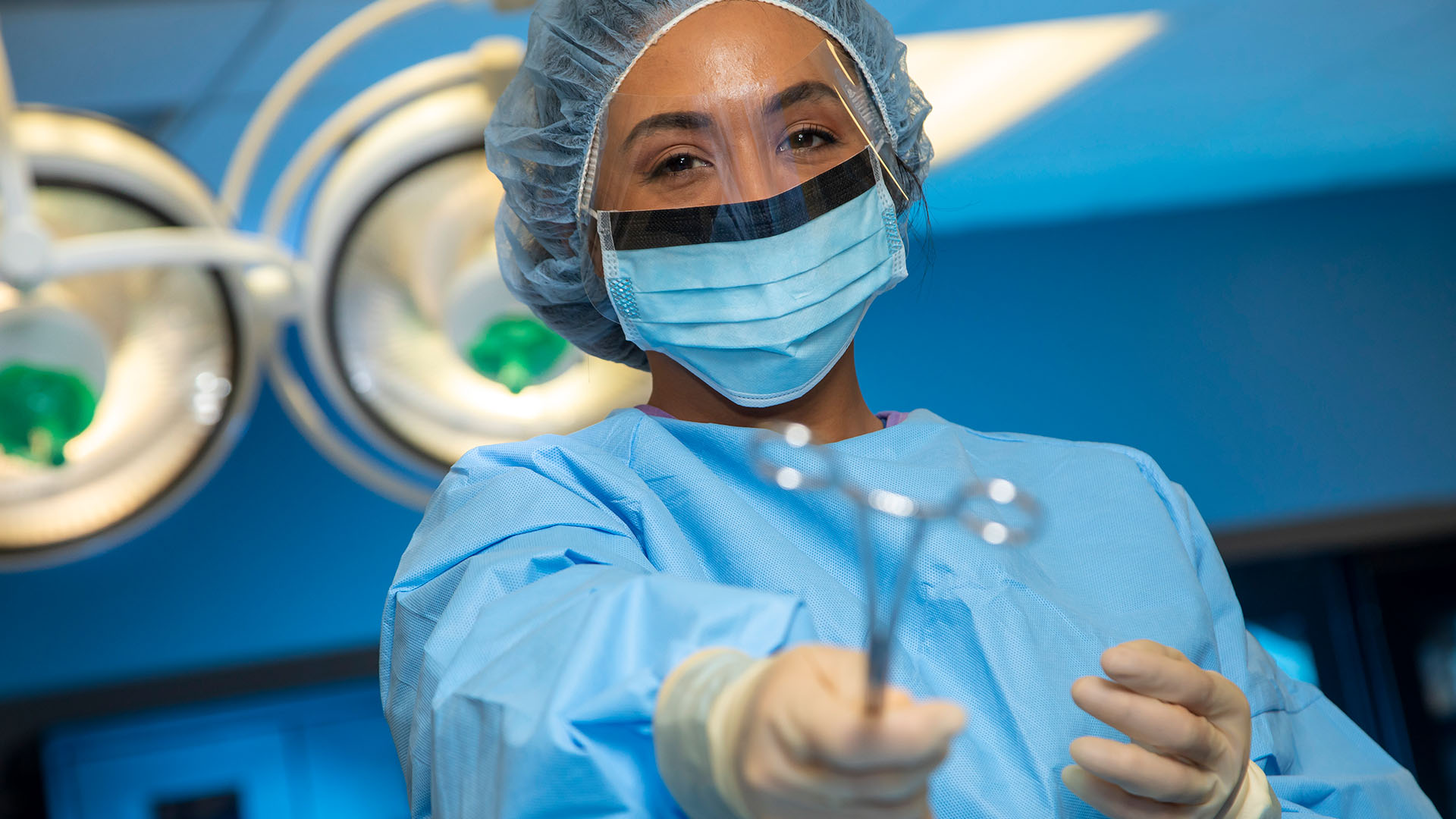
Central Service Instrument Technician (CSIT)
Central Service Instrument Technician (CSIT) Overview
Central Service Instrument Technicians, sometimes called central service technicians or sterile processing technicians, must ensure all instruments used by medical personnel in a hospital or other health care facility are sterile, clean, and ready.
As a Central Service Instrument Technician, you will offer crucial support in all patient care services and must be familiar with every tool used in an operating room. You will also be responsible for cleaning and packaging surgical instruments. In addition, you will sterilize, process, put together, store, and pass out medical devices and supplies, and keep records related to sterilization monitors, orders, and inventory.
Central Service Instrument Technicians take on a number of vital tasks, including:
The Central Service Instrument Technician program at Glendale Career College is a career-based program that focuses on technical skills and offers the relevant hands-on training needed to start working in hospitals, surgery centers, medical facilities, and private practices where surgeries are performed.
Our Glendale campus is conveniently located near Los Angeles, making it accessible for students across the region.
*Glendale Career College cannot guarantee employment.
Proudly accredited, licensed to operate and/or recognized by the following institutions:

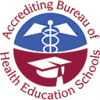

Start Training at a Campus Near You!
The Central Service Instrument Technician (CSIT) program is available at the following campuses:
Meet a Graduate
Questions?
Let us help you launch your career by contacting us today. Simply fill out the form below or call us at 800-639-3384.
Classes are starting soon!
Central Service Instrument Technicians Training in Glendale – Near Los Angeles
Central Service Instrument Technician Careers & Work Environment
The Central Service Instrument Technician (CSIT) program at Glendale Career College provides the education and training needed to begin a career working in a variety of different medical and health care facilities where surgical equipment is used and surgeries are performed. With constant technological advancements in medical supplies, instrumentation, medical devices and equipment, there is high demand for highly trained Central Service Instrument Technicians in hospitals and clinical settings.
Graduates of this program routinely find jobs working in:
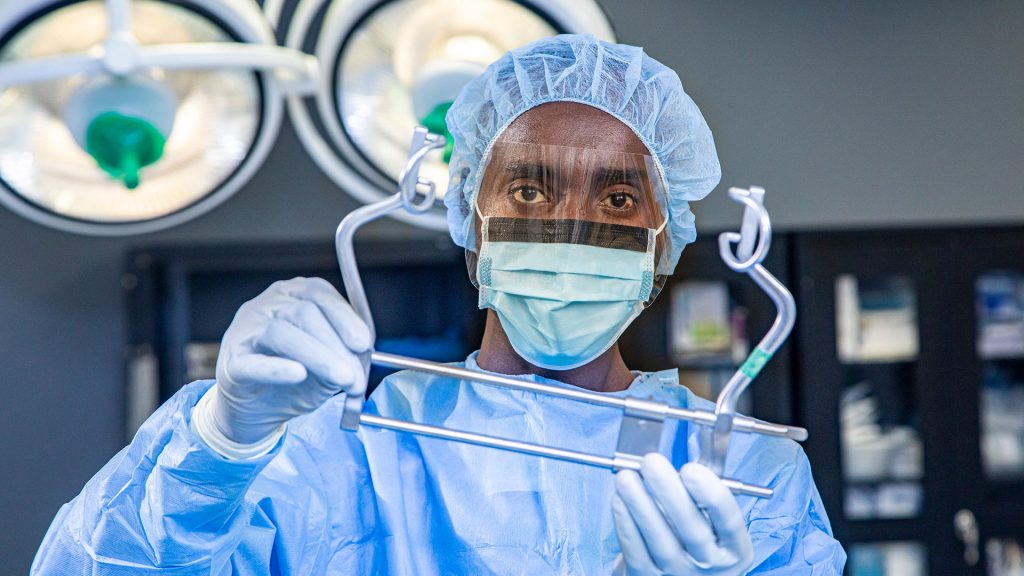
Quick Facts about Central Service Instrument Technicians*
Central Service Instrument Technician Course Material
The Central Service Instrument Technician program at Glendale Career College is a career-focused program that teaches technical skills and provides the hands-on training required to begin working in hospitals, surgery centers, medical facilities and private practices where surgeries are performed. The Central Service Instrument Technician (CSIT) program will prepare students to acquire the knowledge, skills, abilities and experience needed to function as a central service instrument technician. This program is designed to introduce the varied processes and procedures utilized in the central service department of a hospital. This program will prepare the student to function effectively in providing patient care and ensuring the safety to the patient. Students will work on developing skills in instrumentation, chemical disinfection, sterilization, decontamination, quality assurance, and inventory control. Job-related skills will be acquired through a balance of program lecture, demonstration, discussion, and laboratory work in clinical site activities. Upon successful completion of the program, the graduate will be eligible to take the CRCST certification exam through the International Association of Healthcare Central Service Material Management (IAHCSMM). A graduate of the Central Service Instrument Technician program may be employed as a Central Sterile Supply Technician, Sterile Processing Technician, Certified Registered Central Service Technician, Sterile Preparation Technician, Sterile Processing and Distribution Technician, Medical Supply Technician, Sterile Technician, Materiel Reprocessing Technician, and Surgical Equipment Technician upon successfully passing the IAHCSMM Certification exam. This person may be employed in the Central Processing department of a hospital or surgical centers. The program is divided into class course modules including two clinical externship where students will apply the skills they learn in the classroom in actual health care practice settings.
Seminar for Success
Orientation and success building course for Career Students. Review of basic math, language, vocabulary, and writing skills. Introduction to core career classes, availability of community resources, outlining, summarizing, managing credit, and other life skills. Outside preparation and study time, in addition to regular classroom activities, is required to complete the class assignments. The type of outside preparation may take the form of homework assignments, projects, reading, and required studying.
Medical Terminology
Medical terminology is the professional language utilized in the field of medicine. It is the introductory course to all the allied health related programs. This course will provide the students with the basic skills to communicate in the medical language. Outside preparation and study time, in addition to regular classroom activities, is required to complete the class assignments. The type of outside preparation may take the form of homework assignments, projects, reading, and required studying.
Anatomy & Physiology
The Anatomy & Physiology course will be an introduction to the complicated world of the human body. Students will receive lectures on organization of the body, cell theory, tissues, glands, membranes and the integumentary, skeletal, and muscular systems. Students will receive lectures on blood, heart, blood vessels, lymphatic, nervous, sensory, endocrine, respiratory, urinary, digestive, and the reproductive systems. Outside preparation and study time, in addition to regular classroom activities, is required to complete the class assignments. The type of outside preparation may take the form of homework assignments, projects, reading, and required studying.
Microbiology
In this course, students will be introduced to the principles of microbiology and the study of microorganisms such as bacteria, viruses, protozoa and fungi, with emphasis on the nature and the characteristics of microbes and their transmission in the environment. In addition, the fundamentals of Standard (Universal) Precautions and OSHA regulations are stressed. Outside preparation and study time, in addition to regular classroom activities, is required to complete the class assignments. The type of outside preparation may take the form of homework assignments, projects, reading, and required studying.
Aseptic Technique
The principles of asepsis and infection control measures are stressed during this course in order to ensure a safe working environment. During this course, the fundamentals of Standard (Universal) Precautions and OSHA regulations continue to be addressed with an emphasis on reducing the risk of transmitting infectious agents to patients. Outside preparation and study time, in addition to regular classroom activities, is required to complete the class assignments. The type of outside preparation may take the form of homework assignments, projects, reading, and required studying.
Sterilization & Disinfection
This course will provide the student the opportunity to develop the skills needed to work in the central processing department of a hospital or a medical facility. Students will develop skills in decontamination and disinfection as well as high-and-low-temperature sterilization methods, materiel management, and wrapping and storage of supplies. Outside preparation and study time, in addition to regular classroom activities, is required to complete the class assignments. The type of outside preparation may take the form of homework assignments, projects, reading, and required studying.
Instrumentation
In this course, students will learn and be able to identify and name basic surgical instruments, their application and use as well as caring for and maintaining them. Outside preparation and study time, in addition to regular classroom activities, is required to complete the class assignments. The type of outside preparation may take the form of homework assignments, projects, reading, and required studying.
Distribution
In this course, students will learn and be able to apply basic concepts in inventory control and distribution of surgical and medical supplies throughout a hospital or medical facility. Storage and space utilization skills will be emphasized as well as hospital requisitions and case cart distribution systems. Outside preparation and study time, in addition to regular classroom activities, is required to complete the class assignments. The type of outside preparation may take the form of homework assignments, projects, reading, and required studying.
Quality Assurance, Risk Management, CPR
In this course, students will learn the Fundamentals of Basic Life Support and cardiopulmonary resuscitation (CPR) according to the guidelines of The American Heart Association (AHA). Students will progress in their area of Material Safety Data Sheets (MSDS), work simplification, special handling, record keeping, and the Six Sigma concepts in quality assurance. Students will also learn inventory management, human relations skills and professional development. Prior to clinical experience, students will receive Job Preparation training designed to assist the student in entering the workforce. Outside preparation and study time, in addition to regular classroom activities, is required to complete the class assignments. The type of outside preparation may take the form of homework assignments, projects, reading, and required studying.
Clinical Experience I
The first week of Clinical consists of introductory hands-on experience through the central service and sterile processing departments of a hospital or outpatient facility. The student will be expected to observe and perform the basic duties of a central service instrument technician under the supervision of a facility staff member, preceptor or clinical educator.
Clinical Experience II
Clinical consists of a 9-week hands-on experience through the central service and sterile processing departments of a hospital or outpatient facility. The student will be expected to perform the duties of a central service instrument technician under the supervision of a facility staff member, preceptor or clinical educator.
Central Service Instrument Technician Course Activities
Central Service Instrument Technicians (CSITs) provide vital support in all patient care services and their work is essential for preventing infection. They are responsible for knowing all of the tools used in an operating room, as well as sterilizing and packaging instruments used during surgery. They are responsible for decontaminating, cleaning, processing, assembling, storing and distributing medical devices and supplies, and keeping records associated with sterilization monitors.
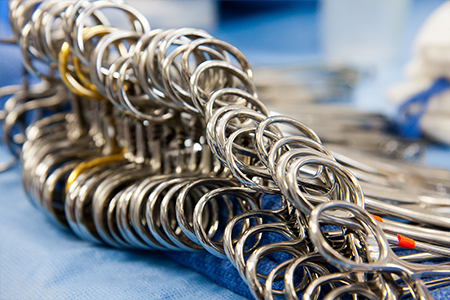
What Do Central Service Instrument Technicians Do?
Request Information
Fill out a short form online and one of our admissions representatives will contact you to answer any questions you have.
Apply Online Now!
Ready to make your decision now? You can apply now online in under a few minutes.
Schedule a Tour
Come and see us in person! Talk to your future instructors, meet your future classmates and get familiar with your new home.
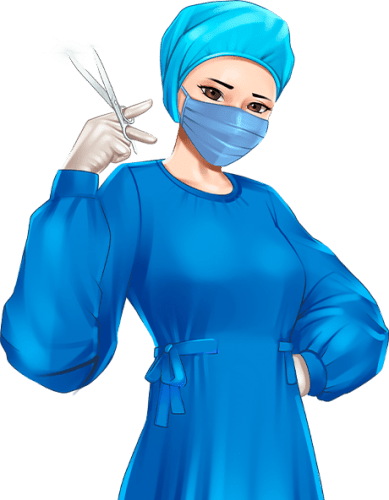
Central Service Instrument Technician (CSIT) Overview
Central Service Instrument Technicians, sometimes called central service technicians or sterile processing technicians, must ensure all instruments used by medical personnel in a hospital or other health care facility are sterile, clean, and ready.
As a Central Service Instrument Technician, you will offer crucial support in all patient care services and must be familiar with every tool used in an operating room. You will also be responsible for cleaning and packaging surgical instruments. In addition, you will sterilize, process, put together, store, and pass out medical devices and supplies, and keep records related to sterilization monitors, orders, and inventory.
Central Service Instrument Technicians take on a number of vital tasks, including:
The Central Service Instrument Technician program at Glendale Career College is a career-based program that focuses on technical skills and offers the relevant hands-on training needed to start working in hospitals, surgery centers, medical facilities, and private practices where surgeries are performed.
Our Glendale campus is conveniently located near Los Angeles, making it accessible for students across the region.
*Glendale Career College cannot guarantee employment.
Proudly accredited, licensed to operate and/or recognized by the following institutions:



Start Training at a Campus Near You!
The Central Service Instrument Technician (CSIT) program is available at the following campuses:
Meet a Graduate
Questions?
Let us help you launch your career by contacting us today. Simply fill out our contact form or call us at 800-639-3384.
Classes are starting soon!
Central Service Instrument Technicians Training in Glendale – Near Los Angeles
Central Service Instrument Technician Careers & Work Environment
The Central Service Instrument Technician (CSIT) program at Glendale Career College provides the education and training needed to begin a career working in a variety of different medical and health care facilities where surgical equipment is used and surgeries are performed. With constant technological advancements in medical supplies, instrumentation, medical devices and equipment, there is high demand for highly trained Central Service Instrument Technicians in hospitals and clinical settings.
Graduates of this program routinely find jobs working in:

Quick Facts about Central Service Instrument Technicians*
Central Service Instrument Technician Course Material
The Central Service Instrument Technician program at Glendale Career College is a career-focused program that teaches technical skills and provides the hands-on training required to begin working in hospitals, surgery centers, medical facilities and private practices where surgeries are performed. The Central Service Instrument Technician (CSIT) program will prepare students to acquire the knowledge, skills, abilities and experience needed to function as a central service instrument technician. This program is designed to introduce the varied processes and procedures utilized in the central service department of a hospital. This program will prepare the student to function effectively in providing patient care and ensuring the safety to the patient. Students will work on developing skills in instrumentation, chemical disinfection, sterilization, decontamination, quality assurance, and inventory control. Job-related skills will be acquired through a balance of program lecture, demonstration, discussion, and laboratory work in clinical site activities. Upon successful completion of the program, the graduate will be eligible to take the CRCST certification exam through the International Association of Healthcare Central Service Material Management (IAHCSMM). A graduate of the Central Service Instrument Technician program may be employed as a Central Sterile Supply Technician, Sterile Processing Technician, Certified Registered Central Service Technician, Sterile Preparation Technician, Sterile Processing and Distribution Technician, Medical Supply Technician, Sterile Technician, Materiel Reprocessing Technician, and Surgical Equipment Technician upon successfully passing the IAHCSMM Certification exam. This person may be employed in the Central Processing department of a hospital or surgical centers. The program is divided into class course modules including two clinical externship where students will apply the skills they learn in the classroom in actual health care practice settings.
Seminar for Success
Orientation and success building course for Career Students. Review of basic math, language, vocabulary, and writing skills. Introduction to core career classes, availability of community resources, outlining, summarizing, managing credit, and other life skills. Outside preparation and study time, in addition to regular classroom activities, is required to complete the class assignments. The type of outside preparation may take the form of homework assignments, projects, reading, and required studying.
Medical Terminology
Medical terminology is the professional language utilized in the field of medicine. It is the introductory course to all the allied health related programs. This course will provide the students with the basic skills to communicate in the medical language. Outside preparation and study time, in addition to regular classroom activities, is required to complete the class assignments. The type of outside preparation may take the form of homework assignments, projects, reading, and required studying.
Anatomy & Physiology
The Anatomy & Physiology course will be an introduction to the complicated world of the human body. Students will receive lectures on organization of the body, cell theory, tissues, glands, membranes and the integumentary, skeletal, and muscular systems. Students will receive lectures on blood, heart, blood vessels, lymphatic, nervous, sensory, endocrine, respiratory, urinary, digestive, and the reproductive systems. Outside preparation and study time, in addition to regular classroom activities, is required to complete the class assignments. The type of outside preparation may take the form of homework assignments, projects, reading, and required studying.
Microbiology
In this course, students will be introduced to the principles of microbiology and the study of microorganisms such as bacteria, viruses, protozoa and fungi, with emphasis on the nature and the characteristics of microbes and their transmission in the environment. In addition, the fundamentals of Standard (Universal) Precautions and OSHA regulations are stressed. Outside preparation and study time, in addition to regular classroom activities, is required to complete the class assignments. The type of outside preparation may take the form of homework assignments, projects, reading, and required studying.
Aseptic Technique
The principles of asepsis and infection control measures are stressed during this course in order to ensure a safe working environment. During this course, the fundamentals of Standard (Universal) Precautions and OSHA regulations continue to be addressed with an emphasis on reducing the risk of transmitting infectious agents to patients. Outside preparation and study time, in addition to regular classroom activities, is required to complete the class assignments. The type of outside preparation may take the form of homework assignments, projects, reading, and required studying.
Sterilization & Disinfection
This course will provide the student the opportunity to develop the skills needed to work in the central processing department of a hospital or a medical facility. Students will develop skills in decontamination and disinfection as well as high-and-low-temperature sterilization methods, materiel management, and wrapping and storage of supplies. Outside preparation and study time, in addition to regular classroom activities, is required to complete the class assignments. The type of outside preparation may take the form of homework assignments, projects, reading, and required studying.
Instrumentation
In this course, students will learn and be able to identify and name basic surgical instruments, their application and use as well as caring for and maintaining them. Outside preparation and study time, in addition to regular classroom activities, is required to complete the class assignments. The type of outside preparation may take the form of homework assignments, projects, reading, and required studying.
Distribution
In this course, students will learn and be able to apply basic concepts in inventory control and distribution of surgical and medical supplies throughout a hospital or medical facility. Storage and space utilization skills will be emphasized as well as hospital requisitions and case cart distribution systems. Outside preparation and study time, in addition to regular classroom activities, is required to complete the class assignments. The type of outside preparation may take the form of homework assignments, projects, reading, and required studying.
Quality Assurance, Risk Management, CPR
In this course, students will learn the Fundamentals of Basic Life Support and cardiopulmonary resuscitation (CPR) according to the guidelines of The American Heart Association (AHA). Students will progress in their area of Material Safety Data Sheets (MSDS), work simplification, special handling, record keeping, and the Six Sigma concepts in quality assurance. Students will also learn inventory management, human relations skills and professional development. Prior to clinical experience, students will receive Job Preparation training designed to assist the student in entering the workforce. Outside preparation and study time, in addition to regular classroom activities, is required to complete the class assignments. The type of outside preparation may take the form of homework assignments, projects, reading, and required studying.
Clinical Experience I
The first week of Clinical consists of introductory hands-on experience through the central service and sterile processing departments of a hospital or outpatient facility. The student will be expected to observe and perform the basic duties of a central service instrument technician under the supervision of a facility staff member, preceptor or clinical educator.
Clinical Experience II
Clinical consists of a 9-week hands-on experience through the central service and sterile processing departments of a hospital or outpatient facility. The student will be expected to perform the duties of a central service instrument technician under the supervision of a facility staff member, preceptor or clinical educator.
Central Service Instrument Technician Course Activities
Central Service Instrument Technicians (CSITs) provide vital support in all patient care services and their work is essential for preventing infection. They are responsible for knowing all of the tools used in an operating room, as well as sterilizing and packaging instruments used during surgery. They are responsible for decontaminating, cleaning, processing, assembling, storing and distributing medical devices and supplies, and keeping records associated with sterilization monitors.

